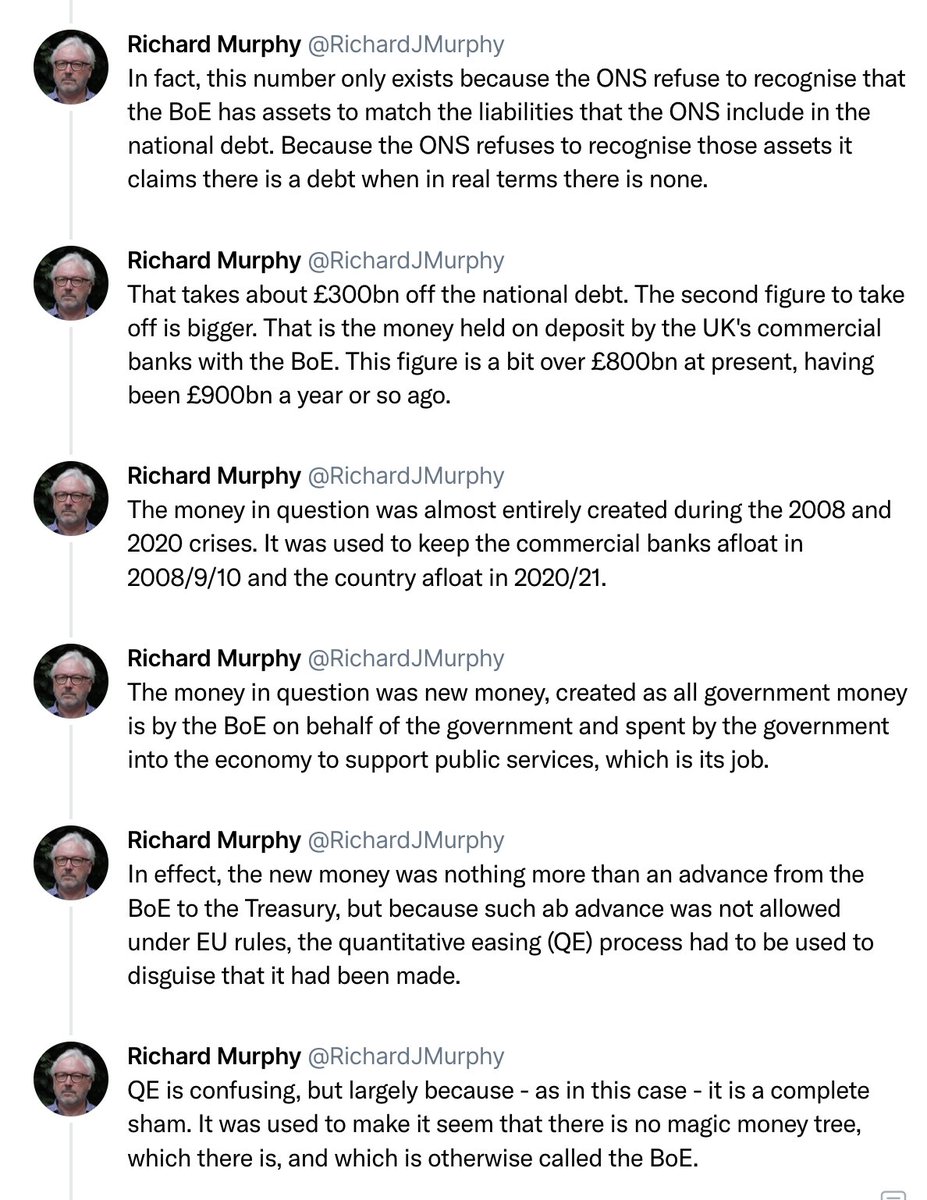If the media was to be believed, the fact that there are people without access to bank accounts in the UK has only just been discovered. Nothing could be further from the truth. The issue is real and ongoing. Let's have some facts. A thread....
The Financial Conduct Authority (the FCA) has responsibility for monitoring this issue. It issued a report on it earlier this year. The data in this thread all comes from there. fca.org.uk/publications/f…
As ever, it seems to be the young who lose out: it is also especially hard for them to be unbanked, I suspect.
The demographics of those unbanked are further explained as follows:
The demographics of those unbanked are further explained as follows:

As the FCA also notes:
"There were higher proportions of unbanked adults in Southern Scotland (6%), Outer London – West and North West (5%), Greater Manchester (4%), and the West Midlands (4%)."
"There were higher proportions of unbanked adults in Southern Scotland (6%), Outer London – West and North West (5%), Greater Manchester (4%), and the West Midlands (4%)."
They add:
"There is also a strong link to deprivation, as 3.6% of adults in the most deprived areas of the UK are unbanked, compared with less than 0.6% in the least deprived areas."
"There is also a strong link to deprivation, as 3.6% of adults in the most deprived areas of the UK are unbanked, compared with less than 0.6% in the least deprived areas."
So, let's be clear that the problem of being unbanked does not mainly arise from having a bank account closed: it arises because a bank account is not available.
This, however, is not seen as a problem for all those without bank accounts. As the FCA notes:
This, however, is not seen as a problem for all those without bank accounts. As the FCA notes:

One-quarter of the unbanked might not want a bank account. About a fifth do. The rest would like the option. What is apparent is that people aren't aware that large banks are legally obliged to offer basic bank accounts. These do not allow overdrafts but do provide payment cards: 

It would seem that very little effort is being made to make people aware of this service.
Around 15% of all applications for financial services products are refused, according to the FCA. Those being refused have the following profile, with all the usual prejudices in society obviously present: 

A staggering 16% of those who applied for a basic bank account were refused, double the rate for routine accounts.
There were reasons for rejection, of course:
There were reasons for rejection, of course:

It would appear that potential political bias by the organisation to which the application was made is a very limited issue.
There were much stronger reasons why people felt unbanked. One was because some (mainly older) people have a dependence on branch banking:
There were much stronger reasons why people felt unbanked. One was because some (mainly older) people have a dependence on branch banking:

So, what to suggest?
I think that there are three vital issues to note.
The first is that if access to banking is now a social necessity (and I think it is), then the current situation of those unbanked is unacceptable.
I think that there are three vital issues to note.
The first is that if access to banking is now a social necessity (and I think it is), then the current situation of those unbanked is unacceptable.
Second, it is apparent that the current behaviour of commercial banks is not addressing this issue. Their focus on supposed efficiency is achieved at a considerable cost to many of their customers, many of whom might be considered the more vulnerable.
Third, when 16% of applications for basic bank accounts are being refused there is no safety net being provided.
In that case there is a need for real reform and this can only come from a state bank that:
• Guarantees basic bank accounts
• Has a wide High Street presence
• Is focussed on providing financial assistance
• Has the goal of achieving inclusion.
Which party will offer this?
• Guarantees basic bank accounts
• Has a wide High Street presence
• Is focussed on providing financial assistance
• Has the goal of achieving inclusion.
Which party will offer this?
• • •
Missing some Tweet in this thread? You can try to
force a refresh

 Read on Twitter
Read on Twitter













